Hair is one way that we express our personality, so when women start to lose hair, it can be a distressing experience. Though rarely discussed, female pattern hair loss is common. At Sinclair Dermatology, we understand hair loss and its impact and offer evidence-based care to help you through it.
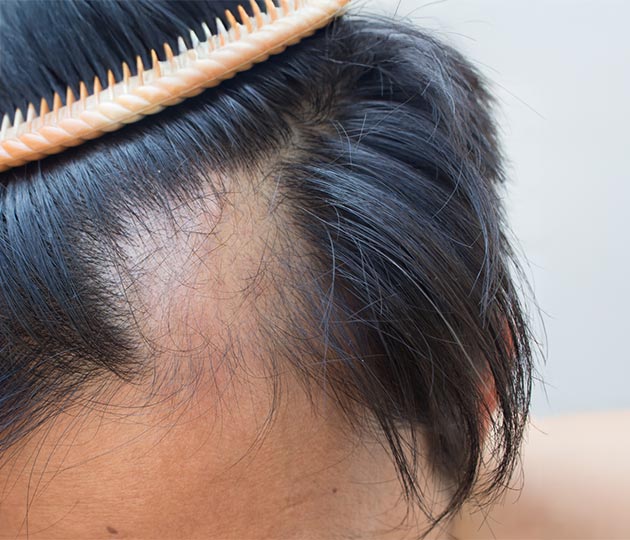
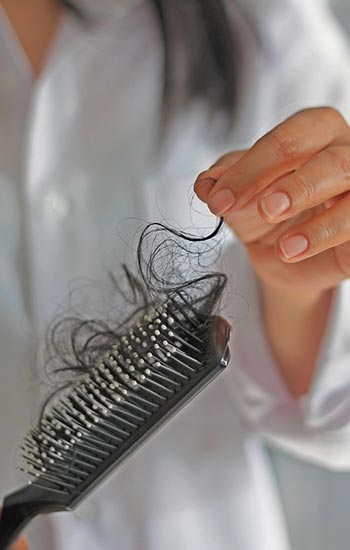

Unlike male pattern baldness, women rarely go completely bald, but the loss of volume and density can affect you in various ways.
Female pattern hair loss (FPHL) – also known as androgenic alopecia in women is the most common type of hair loss in women. This type of hair loss occurs on the top of your head. You might notice:
Female hair loss is more common than many realise – 49% of women will experience it at some point.
Hair loss becomes even more common after menopause. Yet despite how widespread it is, it often goes undiagnosed or untreated.
Hair loss in women can be complex and is rarely due to a single cause. It’s influenced by your genetics, underlying medical conditions, hormones, diet and medications.
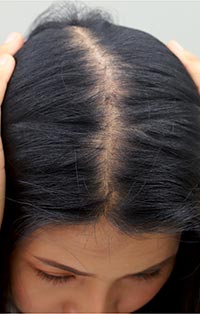
This genetic condition is influenced by hormones called androgens. It can begin as early as your 20s or 30s and tends to progress over time. Your genes start to shorten the growing phase of hair (anagen phase) and extend the time between shedding one hair and growing another, leading to fewer hairs on your head. You may notice your ponytail feels thinner or that more scalp is showing when you part your hair.
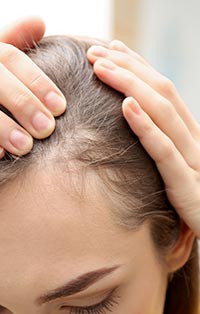
Hair loss in women with PCOS (polycystic ovary syndrome) is due to elevated androgen (male hormone) levels. This hormonal imbalance can lead to thinning on the scalp while simultaneously causing excess hair growth on other parts of the body – a frustrating and distressing combination for many women.

Hair loss due to menopause occurs because oestrogen and progesterone levels decline during this life stage. These hormones help hair grow faster and stay in its growth phase longer – so when levels drop during menopause, your hair may become finer, thinner, or fall out more easily.
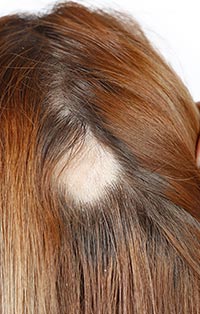
Treatment for female hair loss often depends on the underlying cause.
Dermatologists are medical practitioners whose expertise covers hair, skin and nails. At Sinclair Dermatology, we begin with a comprehensive consultation that may include:

The good news? Most types of female hair loss can be managed (and often improved) with the right care. At Sinclair Dermatology, we tailor treatments based on your type of hair loss, lifestyle, and overall health.
Treatment options may include:
The Sinclair Hair Salon offers specially trained hairdressers who support women with hair loss.
They can advise on products, styling, cutting and hair pieces to help camouflage your hair loss.




